WHPC Stories
OUR MISSION is to preserve, provide and protect affordable housing for the low and moderate income citizens in the state of Wisconsin.
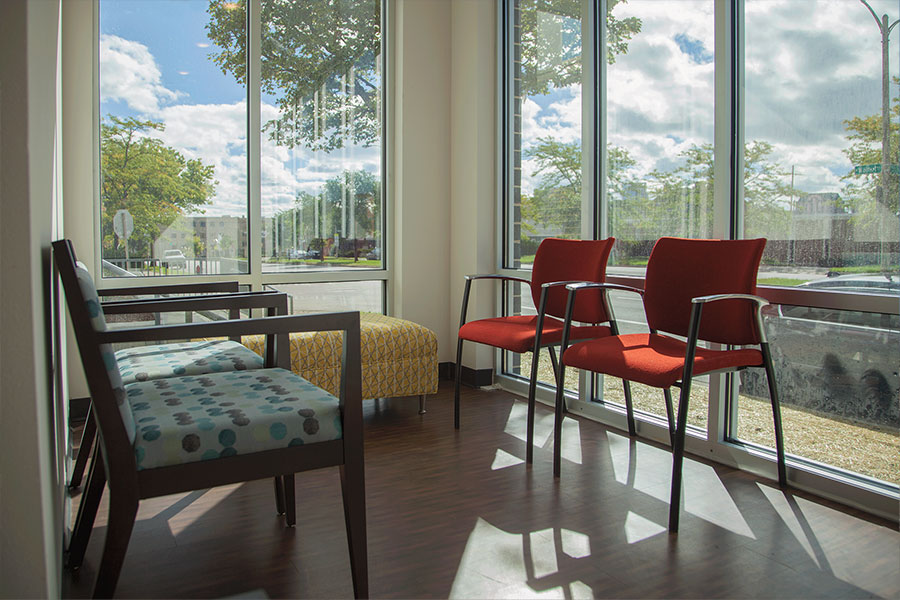
Resident Story
Affordable Housing Fulfills Its Mission
Jeneen was the first tenant to move into City Place but her journey getting there was one of determination. It’s hard to imagine that an apartment building could inspire change. When Jeneen and her two teenage daughters needed to find a new home after a fire left them homeless, City Place was their beacon of hope.
Two years ago Jeneen was diagnosed with an autoimmune disease that required hospital visits for infusions. Her condition limited her ability to work and she lost her job. She and her daughters needed to go on the W2 (Wisconsin Works) program to make ends meet. When a fire struck their apartment, they were forced to temporarily move in with family.
Needing a permanent place to live, she applied at City Place but was denied because her income from W2 was not enough to pay the rent. With encouragement, training and support from City Place management, Jeneen fast tracked her W2 program classes, found a job at Froedtert Medical Center working for her doctor and began earning more than enough to live at City Place.

Resident Story
Forming Meaningful Relationships
Lynn has lived at Brenwood for five years. After a long career, she experienced financial challenges and lost her home. Her daughter contacted Brenwood and in a short period of time secured an apartment. Now on a fixed income, Lynn is living in a beautiful apartment she can afford. She considers Brenwood her home.
During her first two years at Brenwood Lynn rarely interacted with other residents. But slowly coming out of her shell, she experienced the community and became involved. She is proud to be a greeter, introducing residents to each other and building relationships. As a “captain” she creates many of the programs and activities for residents.
“Why not get people involved and make them feel like they are important? We are one of the facilities that have the most things going on. We’ve created a community within a community.”
It was important to Lynn that Brenwood accepted pets. Pets offer a great comfort to senior citizens. Many residents have dogs and it’s a warm feeling to witness them interacting in the lobby and common areas.
Today, Lynn is actively involved in the Brenwood community and considers it her family. She credits management for creating an atmosphere that empowers residents to take charge with their lives.
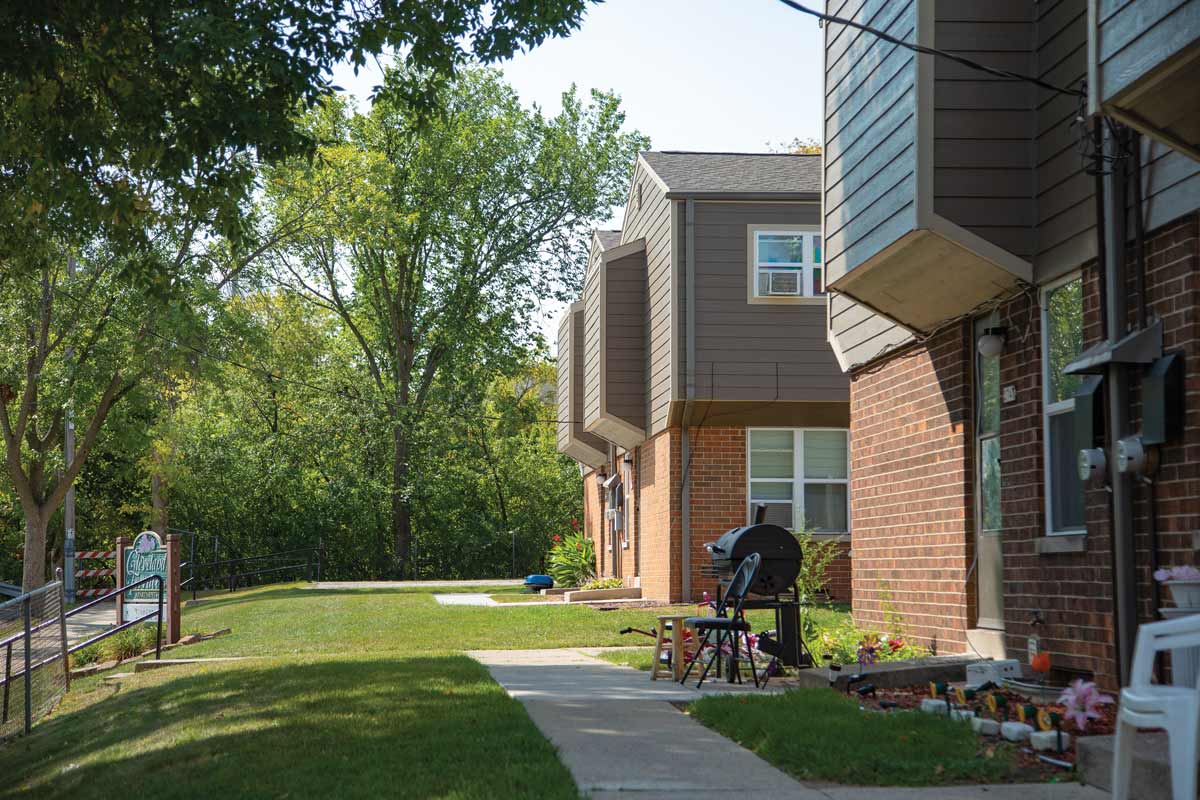
Resident Story
Through the Fire
One day, Lisa arrived at her home in Chicago to discover that all she had worked for was gone. It had all burned in the fire caused by the unit above hers. However, she still had her most valuable treasures: her four children. With nowhere to go and unable to find available resources for the displaced in Chicago, Lisa moved her family to Milwaukee with nothing but each other.
Lisa found a four-bedroom apartment at Main Street Gardens, one of WHPC’s properties near downtown Milwaukee. After securing an apartment for her family, Lisa enrolled her children in school, worked with the property’s on-site Resource Coordinator to transfer her Foodshare benefits to Milwaukee so she and her family could eat. With generous donations and the help of St. Vincent de Paul, Lisa was able to get some of the items she needed to make her home functional and comfortable for her family.
There were many times that Lisa was overwhelmed, upset and exhausted, but she never gave up. She was motivated to make a difference for her children. Lisa and her family are adjusting well to their new home and lives in Milwaukee. Now that everything has settled, Lisa is continuing to work toward building a better life and is in search of a job so she can create a financially stable life for her and her children.
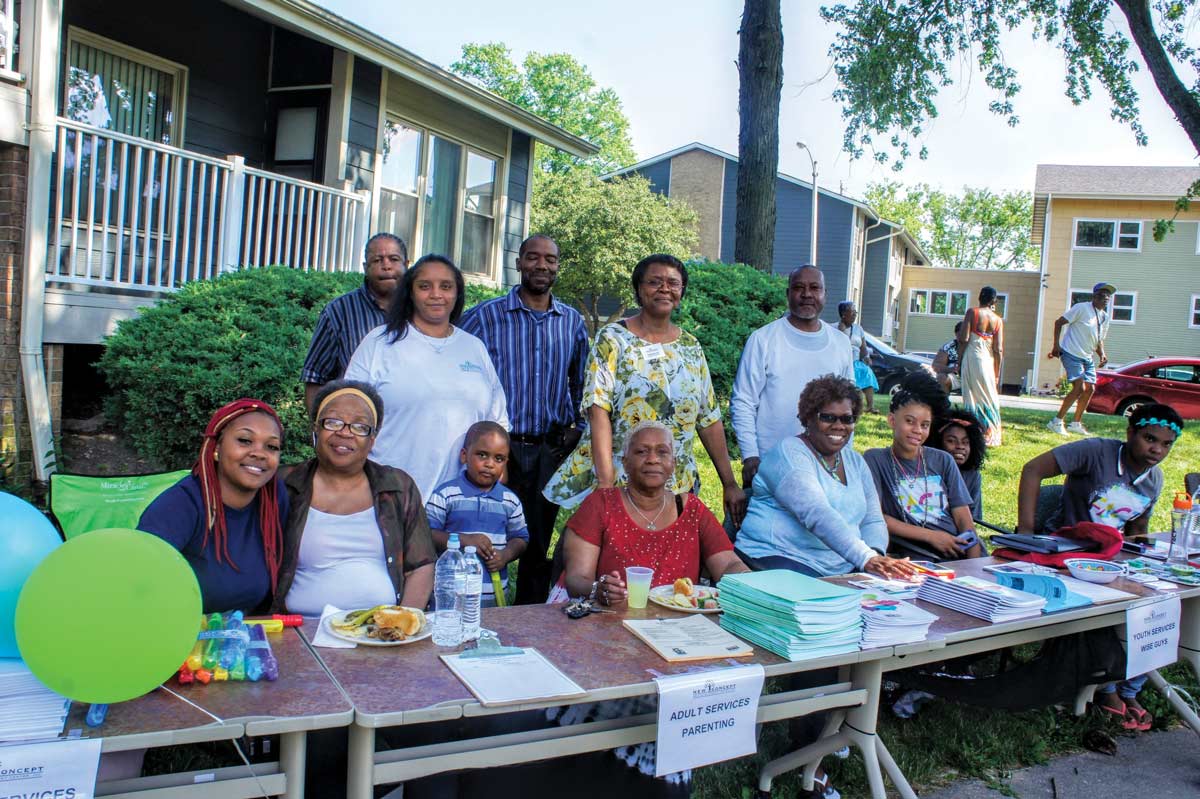
Resident Story
Building a Better Life Through Education
At 39, Mary, a resident at McKinley Gardens, determined it was time to break her family’s cycle of poverty and build a better life for herself. However, she lacked the necessary skills to obtain a job. Frustrated, yet dedicated, Mary knew she had to go back to school to acquire employable skills.
She enrolled at one of Milwaukee’s local educational institutions and worked diligently to learn, complete assignments and attend recommended job fairs. During her time at school, Mary discovered she was missing a key component for job hunting: a resumé. She reached out to McKinley Garden’s on-site Resource Coordinator for assistance on writing a resume and cover letter and applying to jobs online.
After a few weeks of job searching and completing applications, Mary found a job. Along with the new job, she also passed her Pre-Internship at school using the resumé and cover letter she created with the Resource Coordinator. Mary continues to work part-time and further her educational career goals through her schooling.
Affordable Housing Facts & Myths
Despite the benefits of affordable housing, there are common myths and misconceptions causing local communities to question supporting affordable housing in their neighborhood.
Q&A Interview
Day in the Life of a Property Manager
“Part of this job is like being a social worker—helping people with just about everything—making a real connection and lending a sympathetic ear.”
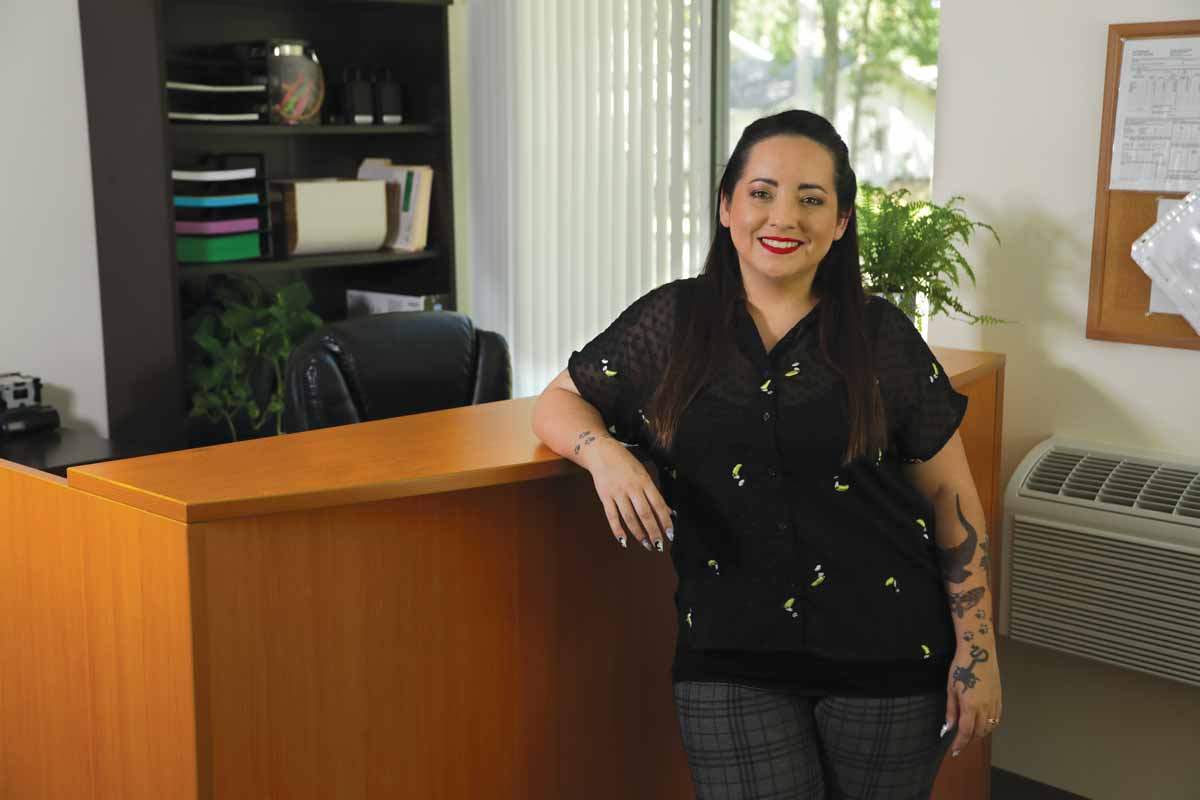
Q: What’s typically your first task of the day?
Thanks to technology, being a property manager can be a 24/7 job. I look at, and respond to emails oftentimes until midnight. I’m the kind of person who cannot relax if things are left unfinished. When tenants email me they know they’ll get a fast response. In the morning if I have voicemails it’s typically people who are tenant prospects rather than current tenants. I check emails constantly. If a tenant has an emergency, they have a number to call. Those emergency calls are patched directly to my phone and I take those calls any time of day.
Q: Are you part of the decision-making process for accepting new tenants?
Yes. We collect applications and go through the screening process on site. When it comes to the paperwork, once a unit is offered, we collect all the required paperwork for the program. It can be a two or three week process. We let them know if they are approved or denied. If denied, they can go through the appeals process which is handled through the corporate office. A rental history and background check is performed. We might take into consideration some things that are out of their control, such as a rough patch in their life, or making a bad decision. We try to work with them when they are trying to turn things around.
Q: How do you determine a person’s ability to qualify?
We have a pre-approved Tenant Selection Plan that details the Credit, Criminal, and Rental History requirements. We usually don’t look at credit scores, but rather the amount of negative credit debt, which is often a relief for applicants. We do rent to people who have a lot of debt and can really benefit from affordable rent to be able to pay on these past debts. Most young people’s debt is coming from student loans and medical expenses which can be overwhelming at a young age. So it’s nice to be able to offer a rent that can fit within their income.
Q: How is the new management office building being used?
What’s nice about the new office building is the organization of it all. And the kitchenette with coffee and cold beverages, and toys and books for the kids. It’s a place where some residents just pop in. Some of the younger tenants are still living their lives, not so much social distancing. But the older people are keeping more space between themselves and others, even distancing from family. Some of the elderly folks can be lonely and need a little TLC.
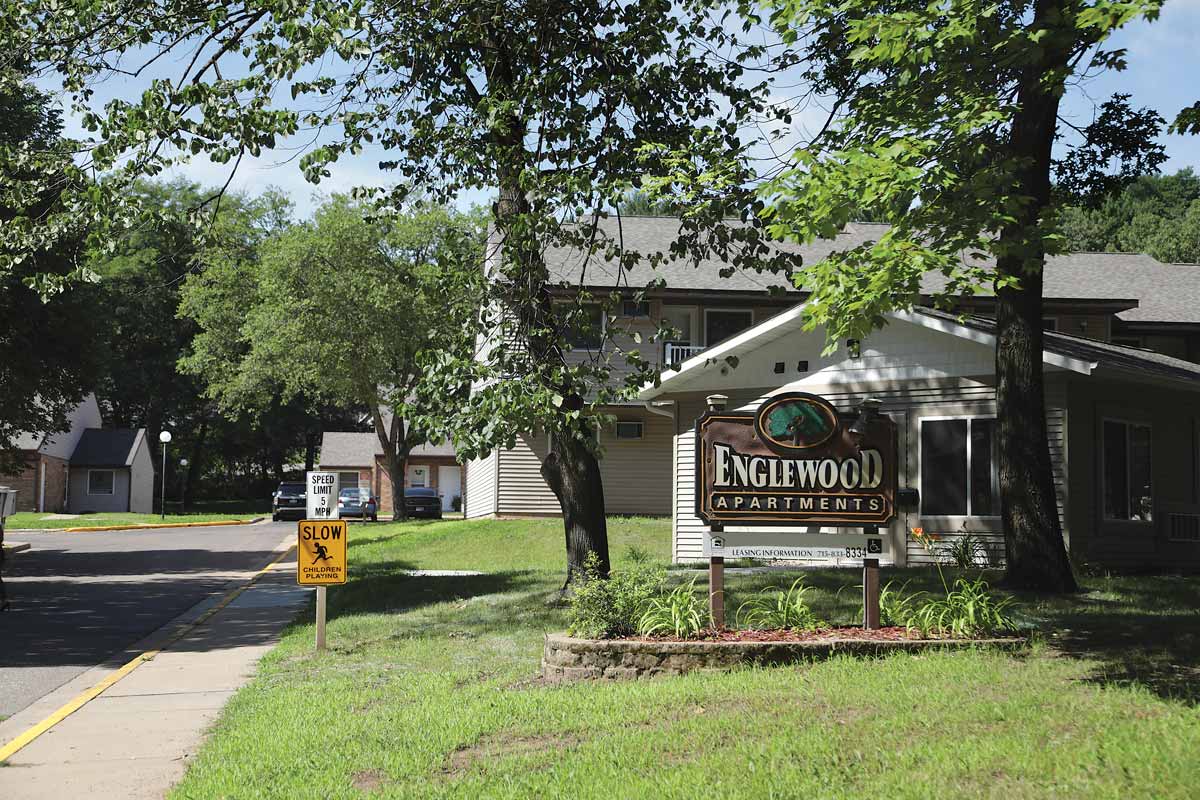
Q: What’s it like juggling tenant’s needs, maintenance and repairs?
I’m from here and live locally. That’s how I know that the vendors we use: carpet cleaners, plumbers, electricians, and appliance servicers, have been around a long time. When a unit is vacant we use lock boxes as our vendors can come and go at their convenience. It helps to get projects completed faster and it frees up my time which can be used more efficiently to assist my tenants.
Q: Why and how often do your perform inspections?
We do an annual routine inspection to make sure the tenants are abiding by the rules, and keeping their residence in a clean, safe condition, and to make sure there are no maintenance issues that may have not been reported or even missed by the tenant. If I notice something is amiss, I have maintenance go back in. If we find that a tenant is not keeping their unit is a safe and sanitary condition, we have a process to help them get back on track. We give the tenant a five day housekeeping notice. The tenant can usually get those chores accomplished in five days.
Q: What are some of your safety policies?
We are looking forward to a no-smoking policy, but at this juncture tenants are allowed to smoke in their apartment. It’s not uncommon to find burns when they move out. For tenants’ safety, and per company policy, we have installed a fire-prevention fixture in every unit. Fire-Stop is a small mechanism that attaches magnetically to the range hood above the kitchen stove. It has a tiny wick, and if heat or flame hits the wick, a baking soda-type substance is released. In addition to the Fire-Stop, our smoke detectors are hard-wired so tenants cannot just take a battery out.
Q: What if tenants bring friends or relatives to live with them?
We have a guest policy which is designed to prevent additional people from moving in. A tenant’s rent subsidy is based on their income and family size. If a friend or family member moves in, their income needs to be documented as part of the rent subsidy consideration. We also perform a criminal background check. If it is just a visiting situation like over the holidays, Wisconsin’s standard lease allows for up to 14 consecutive days. Cardinal Capital Management’s policy is more lenient, allowing 30 days within a calendar year for visitors.
Q: What would you say are some of the skill-sets for your job?
Being a people-person would be at the top of the list. Being patient and compassionate are also essentials. Part of this job in a housing situation like this is like being a social worker, helping tenants with just about everything, making a real connection, and lending a sympathetic ear. I’m on the property often and showcase it a lot. That’s why tenants know my name. In fact, during this interview, I could hear someone from their window say, “Look, Ilicia is having her picture taken!”
Q: What do you like most about being a property manager?
I like being able to help people who really need help. I like having the ability to help so many single parents who are doing everything they can to make a better life for themselves and their children. Oftentimes they cannot because they are making minimum wage, and that’s all they can do. And for people who are living on social security or disability benefits, that 2 to 3 percent a year increase is not very helpful. It’s nice knowing that with all the stresses in today’s world, worrying about having a roof over their head is not a concern.
